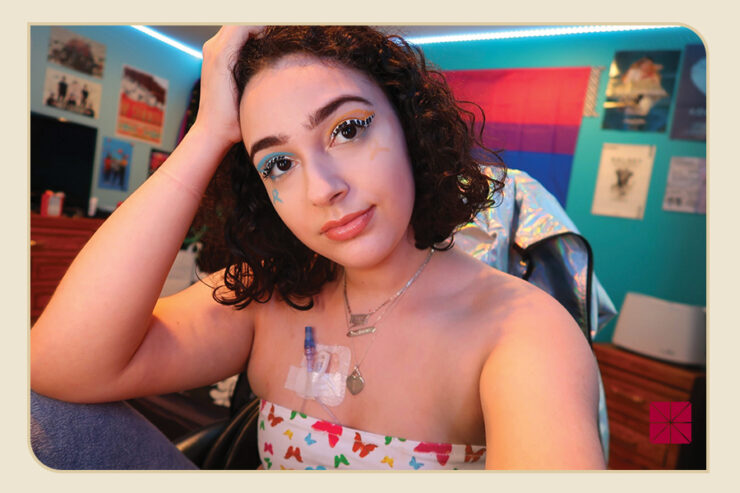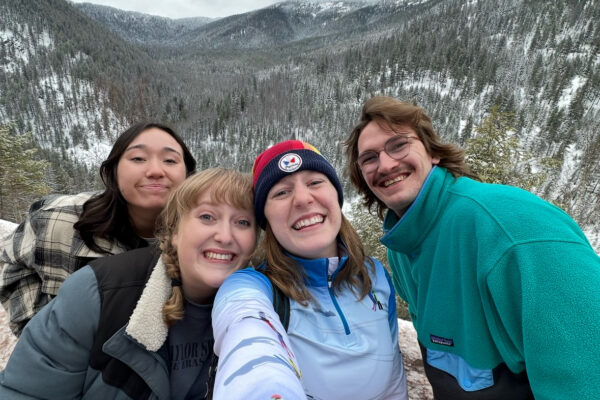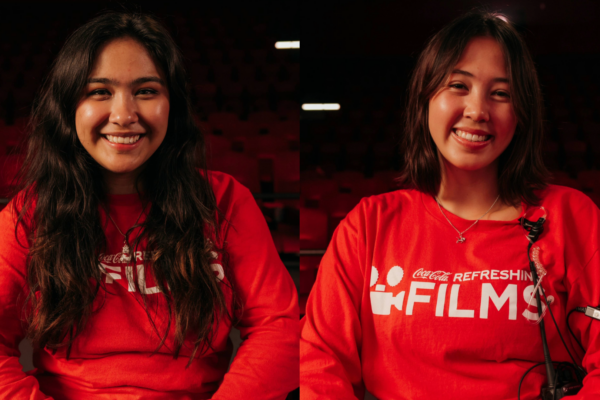Isabelle Primavera ’24 hopes to improve how we tell stories about marginalized communities.
Specifically, the Dodge College graduate aims to support people with disabilities through filmmaking and ensure that their stories are told accurately.
“There’s a lot of inspirational storylines that objectify people with disabilities,” Primavera said. “A lot of those stories are told by able-bodied people who don’t understand.”
Graduating with a degree in broadcast journalism and documentary, Primavera contends that many stories about people with disabilities use their struggles to inspire able-bodied viewers. Primavera discovered this exploitative form of storytelling while coming to terms with their own disability over the last few years.
Primavera believes they can add a more accurate portrayal to stories about disabled individuals by drawing on their experience and the tools they acquired at Chapman.
“Even though disability can include many different types of people, we all relate to each other because we’re living in a world that isn’t designed for us,” Primavera said.

With support from their professors, Primavera spent the last year detailing the journey of coming to terms with their medical and sexual trauma caused by an invasive medical procedure, a voiding cystourethrogram (VCUG) in their senior thesis, “Unsilenced.” The exam, which is performed on young children to diagnose urinary conditions, has lasting impacts on those who have endured the procedure. It has even sparked the creation of the Unsilenced Movement support group for people suffering with the aftereffects of the procedure.
Primavera screened the film, which took about nine months to complete, for their classmates on May 6.
For the documentary, Primavera interviewed their parents, former pediatrician, current doctor and a child life specialist at Johns Hopkins, where they had the procedure. Primavera also spoke with Shelby Smith, the founder of the Unsilenced Movement.
“The biggest challenge is getting this done and exposing this relatively unknown issue while not being completely resolved myself,” Primavera said. “It’s been hard emotionally, but my professors have been very understanding. They’ve tried to help me be as successful as possible, even though I have to do it a little bit differently than everyone else.”
As Primavera departs Chapman, they plan to continue harnessing the power of documentary filmmaking to expose the struggles of underserved communities. But, Primavera will be sure to draw on the compassion and journalistic expertise honed during their time at the university to ensure sensitive stories are told without exploiting struggling communities.
“Eventually, I would like to focus on other marginalized groups as well,” Primavera said. “It’s important to me to make sure stories are told accurately, and I believe I have the skills now to do that.”




